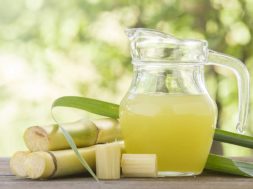Different Ways Of Properly Storing Food
People who buy their food in bulk to save money are usually storing food in smaller quantities until they use it at a later date. Since going grocery shopping is getting even more expensive, it’s really a great saving to buy food in bulk then repackage it in smaller containers to store it for later.
A lot of people save left-overs after a large meal, for example, lots of turkey and trimmings left over after the holidays, also to save money and not waste any food that wasn’t eaten.
But before doing this, you need to know where you’re going to store your food and how to do it safely so you avoid any possibility of food contamination.
If you practice safe food storage, your food should keep for several months, which saves you a lot of money on your food bill and keeps food safe for your family. For example, particular foods can be stored at room temperature while others must be refrigerated or frozen.
For safely and properly storing food, either after a buying in bulk or after a holiday meal, stick to these food storage guidelines:
1. Food Storage Shelf
If you’re storing food on shelves, the food storage shelf should be in a cool dry area. Many foods should also be kept out of direct light. Temperatures should be kept at 70 deg. F or below. All foods need to be stored in an airtight container. Foods can be stored in their original packaging provided that packaging hasn’t been opened. Otherwise, it’s best to use a clear, clean container with an airtight cover.
2. Refrigerated Food Storage
Some people have an extra refrigerator just for the purpose of refrigerated food storage. This is handy because you can store left-overs for a couple of days without the stored foods getting in the way of everyday items like milk and eggs.
Refrigerator temperatures should be set between 33 deg. F and 40 deg. F for the highest food safety. It’s easy to keep a check on the temperature by keeping a thermometer inside the refrigerator. For refrigerated food storage, wrap the food in foil, plastic wrap, plastic bags or seal in airtight containers.
3. Storing Food in a Freezer
Freezer temperatures should be kept at 0 deg. F or below and like with a refrigerator, it’s a good idea to keep a thermometer inside of the freezer so you can regularly check that the temperature is in the correct setting. You should freeze meals or foods in containers that are made for freezer storage only. Wrapping the food properly ahead of freezing is the best way to secure against freezer burn.
It’s also best to label the outside of the food packages with the current date and use the approximate time tables below to know how long you can keep the food is stored in the freezer:
- Raw meats: 6 to 12 months
- Fresh poultry: 6 to 12 months
- Fish and shellfish: If purchased already frozen, 6 to 12 months
- Wild Game: If purchased fresh or brought home fresh after hunting, it can be frozen for up to 3 months. Note: If you own a deep freezer, you can freeze freshly butchered venison for up to a year without losing its flavor.
- Cooked meats and Leftovers: 2 to 3 months
- Smoked meats: 1 to 2 months
Types of Containers for Storing Food
Food vacuum sealers will keep foods fresher longer in the refrigerator, the freezer, and on a shelf in the pantry. LEM vacuum sealers are perfect and affordable for the home butcher to seal fresh meats after hunting. Food vacuum sealers are designed to remove all air from the packaging prior to sealing the bags.
If you’re going to wrap meats in foil or freezer paper, you can use a hand wrapper to wrap the food in plastic wrap first, giving it some extra protection against freezer burn or possible contaminants from other foods in a refrigerator.




